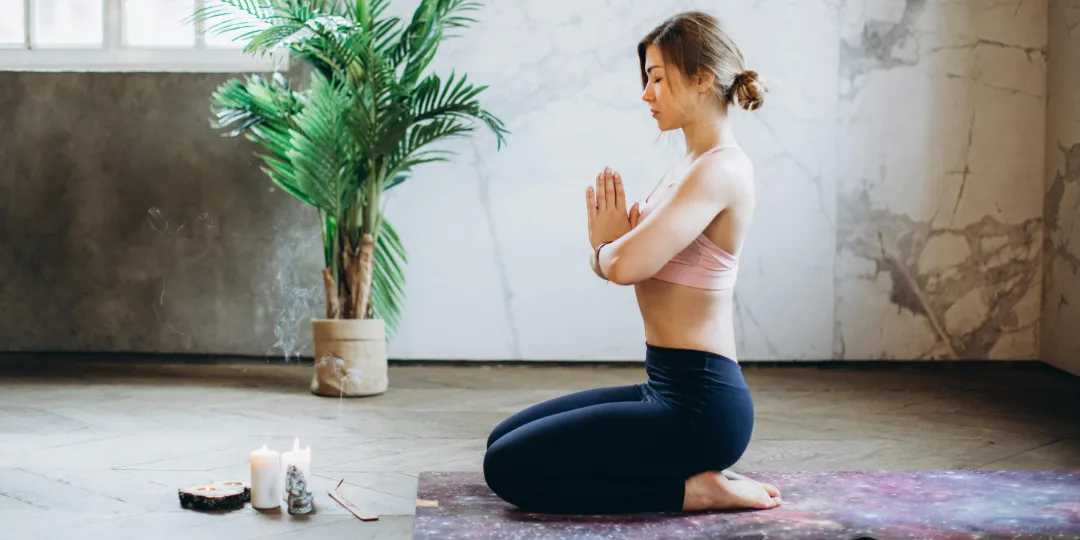Life can feel overwhelming sometimes. Between work, family, social commitments, and trying to keep up with everything going on in the world, it’s no wonder many people feel stressed and anxious.
That’s where living a simple life comes in. In this guide, I’ll explore what it means to live simply, how to start, and why simplifying your life can lead to greater happiness and peace. Let’s dive in.
What Does Living a Simple Life Really Mean?
Definition of Living a Simple Life
Living a simple life is about focusing on what truly matters. It’s about cutting out the noise, distractions, and unnecessary stuff that can make life more complicated than it needs to be. When people hear the term “simple life,” they might think it means giving up everything or living with the bare minimum. But that’s not what we’re talking about.
Living simply means being intentional with your choices. It’s about making decisions that bring you joy and contentment, instead of trying to do or have it all. This can look different for everyone. For some, it might mean decluttering their home, while for others, it could be about reducing their work hours or spending less time on social media.
Why People Are Drawn to Simplicity
In today’s world, where we’re constantly bombarded with ads, social media, and the pressure to do more and own more, simplicity is refreshing. Living simply is a conscious choice to stop running the rat race and step back to focus on what makes you truly happy. With mental health issues on the rise, people are seeking ways to reduce stress and anxiety, and one of the best ways is to strip life down to the essentials.
Living simply helps you avoid the pressures of modern society by saying no to consumerism, hectic schedules, and the need to always be connected. Instead, it shifts the focus onto being present, appreciating the small things, and cultivating happiness from within.
DID YOU KNOW
Living a simple life enhances personal growth: Embracing simplicity can lead to greater self-awareness and personal growth as you identify and focus on what truly matters to you.
The Benefits of Living a Simple Life
When you choose to live simply, you make space for the things that truly matter. Here are some benefits:
- Less stress: Without the clutter and constant busyness, life becomes less overwhelming.
- More time for relationships: When you focus on what’s important, you’ll have more time for family and friends.
- Financial freedom: Spending less on things you don’t need helps you save money.
- Mental clarity: Fewer distractions mean you can think more clearly.
- Deeper contentment: Living simply allows you to appreciate the little things in life.
Let’s break these benefits down in more detail.
- Stress reduction: Modern life can be chaotic. Think about how much of your day is spent worrying about bills, work tasks, managing your home, and even your social media presence. When you live simply, you strip away a lot of these worries. You’re not trying to keep up with the Joneses. You’re not stressed about organizing a cluttered home. You aren’t juggling a million commitments. Less “stuff” means less stress.
- More time for relationships: Time is the most valuable resource we have. But so many of us are guilty of wasting it on things that don’t matter – like scrolling on our phones, watching TV, or shopping online. Simplifying your life allows you to cut out these time-wasters, so you can spend more time with the people who truly matter – whether it’s family, friends, or even yourself.
- Financial freedom: Consumerism often drives us to buy things we don’t need. When you simplify your life, you stop focusing on material possessions. Instead, you spend your money on things that bring you joy or help you achieve your long-term goals. When you stop wasting money on unnecessary purchases, you start saving more, which leads to less financial stress.
- Mental clarity: With fewer distractions, you’ll find it easier to focus on what’s truly important. Whether it’s your career, personal goals, or relationships, simplifying your life can help clear your mind, making it easier to achieve the things that matter.
- Deeper contentment: Instead of constantly striving for more, you’ll learn to appreciate what you already have. Simplicity allows you to focus on the things that truly make you happy, which often aren’t material things. A peaceful evening spent with loved ones, a walk in nature, or a hobby you enjoy can bring you far more happiness than buying more “stuff.”
Simplicity Is Personal
One important thing to remember is that living a simple life looks different for everyone. For one person, it might mean moving to a smaller home or living with fewer possessions. For another, it could mean working less to have more time for family. The goal is to figure out what simplicity means to you. What makes you feel more at peace? What are the things in your life that add unnecessary stress or clutter? Once you answer these questions, you can start taking steps to simplify.
Some people thrive on minimalism, where they live with just the bare essentials, while others might just want to reduce clutter in their schedules, leaving more time for the things that matter. It’s not about following a strict set of rules, but about crafting a life that brings you peace, joy, and meaning.

Why Living a Simple Life Is More Relevant Than Ever
The Problems With Modern Living
In today’s world, it feels like we’re always being asked to do more, buy more, and keep up with everything. Social media, advertisements, and even the people around us can make us feel like we’re missing out or falling behind if we don’t have the latest gadget or are not constantly busy. This can lead to a sense of overwhelm and dissatisfaction.
Some common issues with modern life include:
- Information overload: We’re constantly bombarded with news, emails, texts, and notifications, which can be exhausting.
- Consumerism: Advertisements are everywhere, telling us we need more stuff to be happy.
- The glorification of busyness: People often feel the need to stay busy to feel productive, but this can lead to burnout.
We live in a fast-paced world where people are rewarded for working long hours and filling their schedules to the brim. And thanks to social media, it feels like everyone else is living the perfect life. This pressure leads people to feel like they’re not doing enough or don’t have enough, pushing them to work harder, spend more money, and constantly seek validation.
Information overload: The amount of information available to us at all times can be overwhelming. Social media, email, text messages, and 24-hour news channels make it impossible to truly disconnect. All this information can clutter our minds and leave us feeling frazzled.
Consumerism: Our society places a huge emphasis on material success. Advertisers are constantly telling us that buying more stuff will make us happier. But in reality, studies have shown that once our basic needs are met, having more stuff doesn’t make us happier – it just adds to the clutter in our lives.
The glorification of busyness: Many people equate busyness with success. But being busy all the time isn’t the same as being productive or happy. In fact, being constantly busy can lead to stress, burnout, and a lack of fulfillment. When we’re always rushing from one task to the next, we don’t have time to enjoy the present moment or the things that truly matter.
The Impact on Mental and Physical Health
All this chaos doesn’t just stress us out mentally – it can also affect our physical health. Studies have shown that constantly being in a state of stress can lead to issues like anxiety, depression, and even physical health problems like high blood pressure. Living a cluttered, hectic life doesn’t just affect our minds, it affects our bodies too.
When we’re stressed, our bodies produce a hormone called cortisol. Over time, high levels of cortisol can lead to a variety of health problems, including:
- Weight gain
- High blood pressure
- Weakened immune system
- Heart disease
- Difficulty sleeping
So, by simplifying your life, you’re not just reducing your mental stress – you’re also protecting your physical health.
How Simplicity Is the Solution
This is why living a simple life has become more important than ever. By cutting out the things that don’t matter and focusing on what does, we can create more peace and balance in our lives. Whether it’s decluttering your home, simplifying your schedule, or limiting your time on social media, living simply allows you to take control of your life and focus on what truly makes you happy.
Instead of feeling overwhelmed by everything life throws at you, you can create a life that is intentional, peaceful, and fulfilling. It’s about stripping away the things that don’t matter and focusing on what does. Simplicity helps you focus on your priorities, which can lead to a deeper sense of contentment and happiness.

How to Start Living a Simple Life
Starting to live simply doesn’t have to be hard. In fact, it’s about making small, intentional changes over time. Below, we’ll go through actionable steps to help you simplify different areas of your life.
Step 1: Declutter Your Physical Space
One of the easiest ways to start living a simple life is to declutter your physical space. Clutter can make you feel overwhelmed and anxious. When your home is filled with things you don’t need, it’s hard to relax. Start by tackling one room at a time. Here are some tips for decluttering:
- Start small: Don’t try to declutter your entire house in one day. Start with one room or even one drawer.
- Create three piles: When decluttering, make three piles: keep, donate, and throw away. Be ruthless with the items you no longer use or need.
- One in, one out rule: To prevent clutter from building up again, adopt the “one in, one out” rule. For every new item you bring into your home, get rid of one you no longer need.
- Focus on functionality: Keep items that serve a purpose in your life. If you haven’t used something in the past year, consider whether you really need it.
When you declutter your space, you’re not just creating a more organized home – you’re also creating mental clarity. A clutter-free environment can help you feel more relaxed and at ease.
Step 2: Simplify Your Schedule
After decluttering your physical space, the next step is to simplify your schedule. Many people fill their calendars with work, social events, and other obligations without stopping to think about what truly matters. Here’s how to start simplifying your schedule:
- Prioritize: Make a list of your top priorities. What’s most important to you? Is it family time? Exercise? Time for self-care? Focus on scheduling the things that align with your priorities.
- Learn to say no: It can be hard, but learning to say no is crucial for simplifying your life. You don’t have to accept every invitation or take on every task. It’s okay to say no to things that don’t align with your priorities.
- Limit screen time: Many people spend hours each day on their phones or watching TV. While it’s okay to relax with some screen time, try to limit it so that you have more time for activities that truly bring you joy.
- Create boundaries: If work is taking over your life, set boundaries. This could mean not checking emails after a certain time or creating a dedicated workspace so that work doesn’t invade your personal space.
By simplifying your schedule, you’ll free up time for the things that truly matter. You’ll have more time to spend with loved ones, pursue hobbies, or simply relax.
Step 3: Simplify Your Finances
Money is one of the biggest stressors for many people. Simplifying your finances can help reduce financial stress and give you more control over your money. Here’s how to start simplifying your finances:
- Create a budget: A budget is one of the most powerful tools for simplifying your finances. Start by tracking your income and expenses, and then create a budget that reflects your priorities.
- Cut unnecessary expenses: Look at your budget and identify areas where you can cut back. Are you spending too much on dining out or subscription services? Cutting these expenses can free up money for more important things.
- Automate your savings: Set up automatic transfers to your savings account so you don’t have to think about it. Automating your savings makes it easier to save money without even realizing it.
- Eliminate debt: If you have debt, make a plan to pay it off. Start with high-interest debts first, and once those are paid off, focus on the rest.
- Prioritize experiences over things: When you do spend money, prioritize experiences over material things. Studies have shown that spending money on experiences, like travel or time with loved ones, brings more lasting happiness than buying stuff.
Step 4: Embrace Minimalism in Technology
Technology can be a wonderful tool, but it can also be a source of distraction and stress. Here’s how to simplify your relationship with technology:
- Limit notifications: Turn off unnecessary notifications on your phone. This can help reduce the constant interruptions and allow you to focus on what truly matters.
- Take breaks from social media: Social media can be overwhelming and lead to feelings of comparison. Taking breaks from social media can help you feel more present and content.
- Use technology mindfully: Be intentional about how you use technology. Instead of mindlessly scrolling through your phone, set aside specific times for checking emails or social media.
- Unsubscribe from emails: Take a few minutes to unsubscribe from email lists that don’t add value to your life. This will help declutter your inbox and reduce the time you spend sorting through emails.
Simplifying your technology use can help you feel more in control and less distracted. It allows you to focus on the things that truly matter instead of getting caught up in the noise of the digital world.

Mindful Consumption: Living Simply and Ethically
Living a simple life also means being mindful of how you consume resources. This goes beyond just your finances – it’s about the impact your lifestyle has on the world. Here’s how to approach mindful consumption:
Reduce Your Environmental Footprint
- Minimize waste: Cut down on single-use plastics and opt for reusable items like cloth bags, metal straws, and glass containers.
- Buy second-hand: Whether it’s clothes, furniture, or appliances, buying used is not only more affordable but also reduces demand for new goods.
- Support ethical brands: Choose to spend your money with companies that prioritize ethical practices, whether it’s fair labor conditions, eco-friendly materials, or sustainable production.
The Role of Gratitude in Living a Simple Life
One of the simplest but most profound changes you can make is to cultivate gratitude. When you’re grateful for what you already have, you’re less likely to seek out more things or feel dissatisfied with your life. Here’s how gratitude fits into a simple life:
- Daily gratitude practice: Start or end your day by listing three things you’re grateful for. They don’t have to be big things – it could be something as small as a sunny day or a good cup of coffee.
- Focus on the present: Gratitude helps you stay present and appreciate the moment instead of constantly thinking about the future or dwelling on the past.
- Gratitude and relationships: Being grateful for the people in your life can deepen your relationships and help you feel more connected to others.
Gratitude is a key part of living simply because it shifts your focus away from what you don’t have and helps you appreciate what you do have.
DID YOU KNOW
Living a simple life can boost creativity: When you eliminate unnecessary clutter and distractions, you create more mental space for creative thinking and problem-solving.
Conclusion to Living a Simple Life
Living a simple life isn’t something that happens overnight. It’s a journey, and it’s okay to take it one step at a time. Whether it’s decluttering your home, simplifying your schedule, or letting go of perfectionism, each small step brings you closer to a life of peace, contentment, and joy.
The beauty of simplicity is that it’s a lifestyle anyone can adopt. You don’t have to live in a tiny house or give up all your belongings to enjoy the benefits of a simpler life. It’s about making intentional choices that align with your values and bring you happiness. And remember, living a simple life is personal – what works for someone else might not work for you. The key is to figure out what simplicity means to you and take steps toward living that life.
Now is the perfect time to start your journey toward simplicity. You don’t have to do it all at once. Start with one small change and build from there. Before you know it, you’ll be living a simpler, more fulfilling life.



